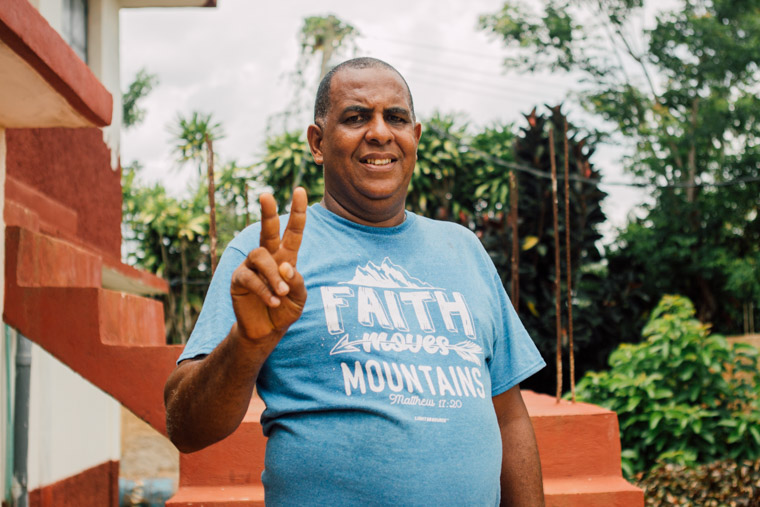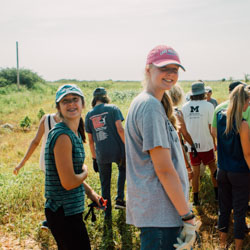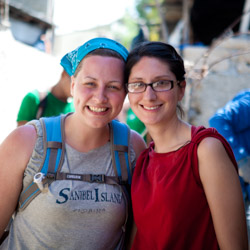
The last 40 years have seen the exponential rise in the popularity of short-term mission trips—faith-based service and learning experiences across the country or around the world for groups or individuals. But while there is so much potential good in these sorts of experiences, there are also harmful pitfalls that can be easy to fall into while serving. So, as you consider serving on a mission trip in the near future, we believe there are 5 things you need to know in order to make your experience a positive one for both you and the people you’re coming to serve and learn from.

1. Your posture matters.
Almost every time you enter into a community to serve, you or your team comes with “weather”—an unspoken agenda and way of being that is different from the community’s. This could be anything from your sense of when and how things should happen or the confidence with which you speak in conversations about things that are foreign to you. If you come with a rigid schedule that causes you to judge, correct, or direct others, you may get some things done, but at the cost of the relationships you’re hoping to build with the people you meet. Talking instead of listening, instructing instead of learning, and seizing power instead of lifting people up.
So how can you approach your mission trip differently? We suggest three things. First, make your primary focus loving and accepting everyone. This builds trust and a foundation for a relationship to grow. Second, listen and learn to give respect where it’s due. This honors the experience of those with more firsthand knowledge of the situation you’re encountering, and communicates to people that they are more than just a problem to be fixed. Third, serve and partner with the local people as a humble outsider coming into their space. (More on this on #5.)
2. How you approach what is “different” makes a difference.
Whenever we come up against anything that is different from what we are used to, we tend to react by withdrawing and making a judgment. Imagine your plane lands in Jamaica. You get a ride to where you’ll be staying, and when you venture out for your first visit, you look left to see if any cars are coming before you step into the street. A horn honks as you nearly get run over by a car coming from the right. Naturally, you’re afraid and make some negative comments followed up with a judgment about the driver. But was it the driver’s fault, or did you look the wrong way? In Jamaica (a former British colony) cars are driven on the left side of the road. It is not the wrong side of the road; it’s just the different side of the road.
This experience can happen in any number of ways when you enter a different culture, be it on the other side of the world or the next town over. It’s important to remind ourselves that “different” doesn't mean “bad” or “wrong.” If we can reserve our judgment and treat these experiences as learning opportunities, we will go a long way toward bridging the gap between our small corner of the world and somewhere new.

3. People are more important than projects.
People matter to God. We were all created “in His image” as co-laborers to cultivate and create in this world. Every person we encounter is imbued with innate human dignity and value, no matter their circumstances. That means the most important aspect of our mission work is reminding people that they matter, to God and us, in big and small ways.
If your mission trip project is to paint a widow’s house, it’s significantly more essential for you to take the time to look in her eyes and hear her story than it is to get the house painted. The stuff we do for someone should always take a backseat to making sure we’re seeing and treating people as equals, just like you and me.

4. You’re not saving anyone.
One of the biggest criticisms of short-term missions is the “savior mentality” of those coming to serve. It has been too easy to look at these sorts of trips through the small lens of one week’s worth of interactions and service and declare a community or people group to be changed forever. This puts the focus on us instead of on God. You can rest assured that God has been present well before you arrive, and His love and care for all people is much grander than yours.
We get a small part to play, which boils down to one of Jesus’ greatest commandments: “love your neighbor as yourself.”
We contribute best on a mission trip when we seek to live out this commandment in all of our words and actions. And we can also rest in the knowledge that God has not asked us to do the saving (that’s His job), but simply to love all those who cross our path as we would want to be loved, seen, dignified, and valued.

5. You are a guest in someone else’s home.
An unfortunate reality of calling these experiences “mission trips” is that it implies a plan or agenda, something we’re coming to do to make life better for someone else, come hell or high water. At EM, our hope is that a move is underway to give these trips a new name, something like “short-term learning experiences” which places a stronger emphasis on our role as learners, humbly entering into a community with a desire to build people up and serve where helpful. There are sadly not enough of us from the “developed world” taking the time to listen and learn from those in the “majority world” who receive us, yet we are the guests in their home.
As you seek to serve on a mission trip, consider what it would be like to host someone in your home—how you would want to interact with them, what behaviors would seem appropriate and well-received, and what conversations would make you feel at ease and valued. It’s likely that none of us would appreciate a guest who came with their own rigid agenda, looking to accomplish something without regard for our desires or humanity. We hope this reminder changes the way you approach your next mission trip, as someone who seeks to engage with humility, respecting the home you’ve been welcomed into.
—
Ready for a mission trip? Bring your team of 6 or more on a 1-week group mission trip or join IMMERSION, 1-9 month missions experiences for young adults, age 18-30. Get started today!
More Mission Stories


Site developed and hosted by Skycog, Inc.
